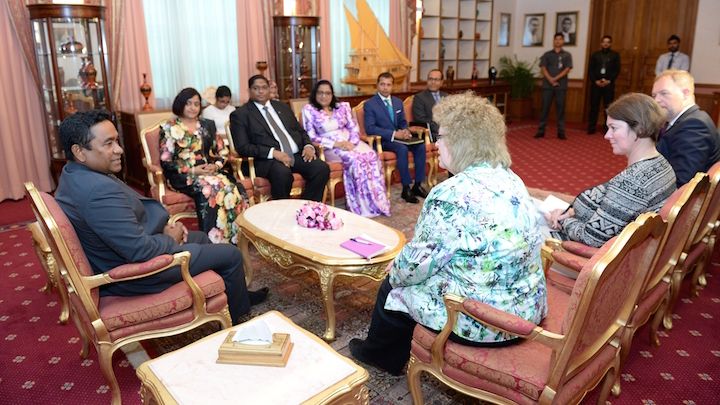Maldives hits back at mounting pre-election concern
The government hit back after calls from Western ambassadors “to demonstrate genuine commitment to a credible, transparent, and inclusive election process.”

02 Jun 2018, 09:00
The Maldivian government has hit back at criticism from the West over the “deterioration” of the country’s political situation ahead of presidential elections in September.
In a joint statement Thursday, ambassadors from the European Union, Canada and the United States urged the authorities to respect the freedoms of assembly and speech and “to demonstrate genuine commitment to a credible, transparent, and inclusive election process.”
The statement followed obstruction of the opposition Maldivian Democratic Party’s presidential primary, which took place nationwide despite police snatching ballot boxes and arresting party officials.
But the government accused MDP of breaching the political party law, without specifying how the primary voting constituted legal violations.
Become a member
Get full access to our archive and personalise your experience.
Already a member?
Discussion
No comments yet. Be the first to share your thoughts!
No comments yet. Be the first to join the conversation!
Join the Conversation
Sign in to share your thoughts under an alias and take part in the discussion. Independent journalism thrives on open, respectful debate — your voice matters.




